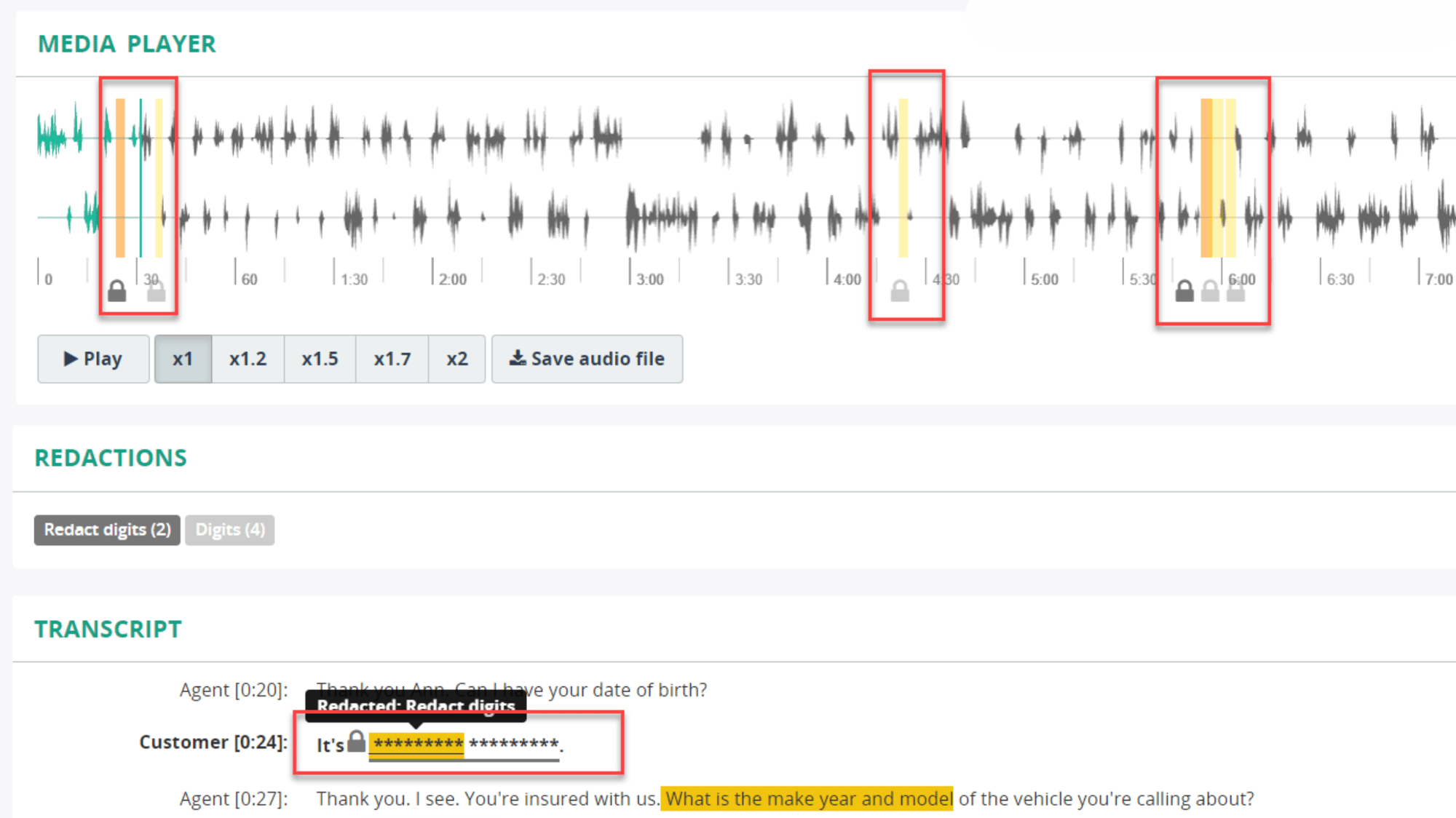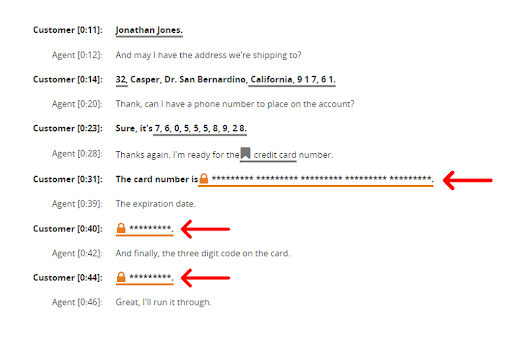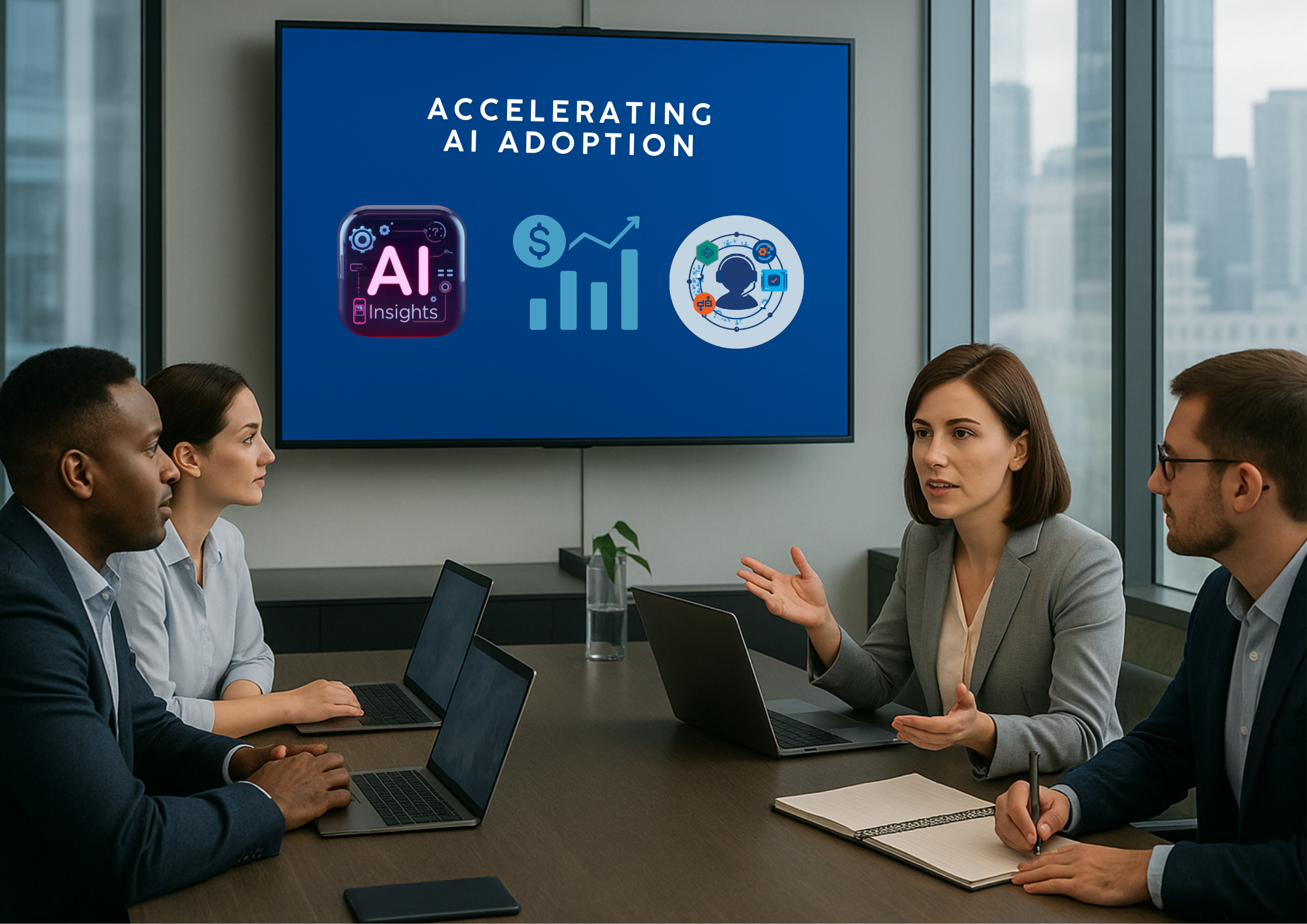Auto Data Redaction
Automatically remove sensitive data such as Personal Identifiable Information (PII) and payment card numbers from your transcripts and audio recordings.
Protect Sensitive Data
Remove Personal Identifiable Information (PII) like account numbers, social security numbers, dates of birth, and PCI data, including card numbers, from audio and transcripts.
Scale Compliance Workflows
Save your staff time by automating compliance workflows. Easily censor sensitive customer data in all instances of PCI and PII discussed between agents and customers.
Improve Accuracy
Improve accuracy by eliminating human error and bias in manual redaction. AI-powered audio redaction detects context in conversations to censor inaccuracies from transcriptions.
MiaRec makes compliance easy with AI-powered Automatic Data Redaction
MiaRec's newly enhanced ML-Based Auto Redaction sets the gold standard for accuracy in the current market landscape.
By harnessing the forefront of AI technology, including Named Entity Recognition and Machine Learning, we have achieved an exceptional 99.9 percent accuracy in identifying and eliminating sensitive information from both the transcripts and the associated audio files. Each redaction type is clearly labeled in the transcripts for full visibility into what data was redacted.
Scale and automate your compliance processes with MiaRec Auto Data Redaction capabilities.


Benefits
High Accuracy
Automatically identify and categorize sensitive data elements, including personal identifiable information (PII), such as names, social security numbers, credit card details, addresses, and more. Using Named Entity Recognition (NER) and Machine Learning (ML) trained on thousands of conversations, MiaRec’ AI-based redaction is more accurate than traditional pattern-matching.
No Over-Redaction
The models understand the context of the conversation, so it can predict with high accuracy if these digits belong to a credit card number and must be redacted, or if these digits are customer account numbers, and they are needed to be kept in the recordings. This results in avoiding significantly mis-redaction and over-redaction.
Out-of-the-Box Configuration
The solution requires zero configuration, eliminating the need to set complex rules and spend time on extensive configuration, compared to pattern-matching auto data redaction solution.
Meet with one of our experts to learn more and receive a personalized demo:
Auto Data Redaction FAQs
Yes. MiaRec allows for testing of data redaction by creating a data redaction job. Instead of redacting text from the transcript, it will highlight the data that would be redacted in a real scenario.
Yes. It is possible to train the model to redact other pieces of sensitive info such as Social Security Numbers, bank account numbers, and more.
No, data redaction is permanent.
Continue Learning About Auto Redaction And More
Our Modern Contact Center Blog provides practical tips, tricks, and strategic expert advice on how to keep your contact center ultra efficient while providing the best customer experience possible!

How Can Contact Centers Use AI to Reduce Unnecessary Pharmacist Transfers (and Protect Specialist Capacity)?

How Home Care Contact Centers Can Use AI To Flag Critical Patient & Aide Incidents Automatically

